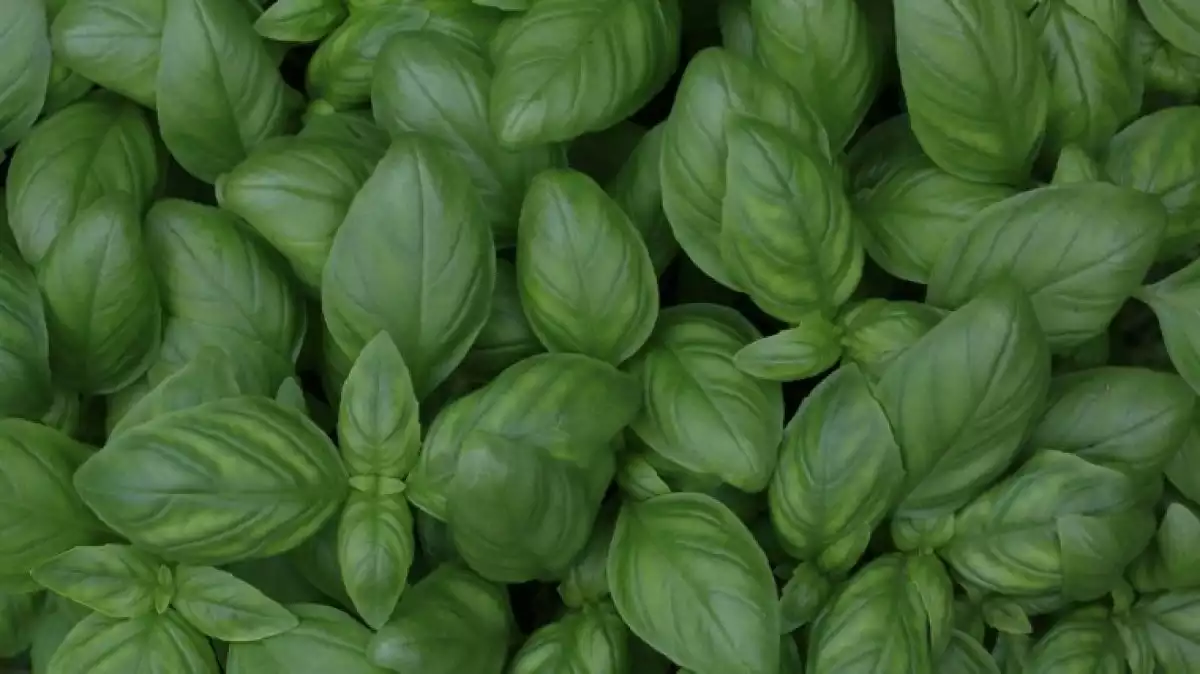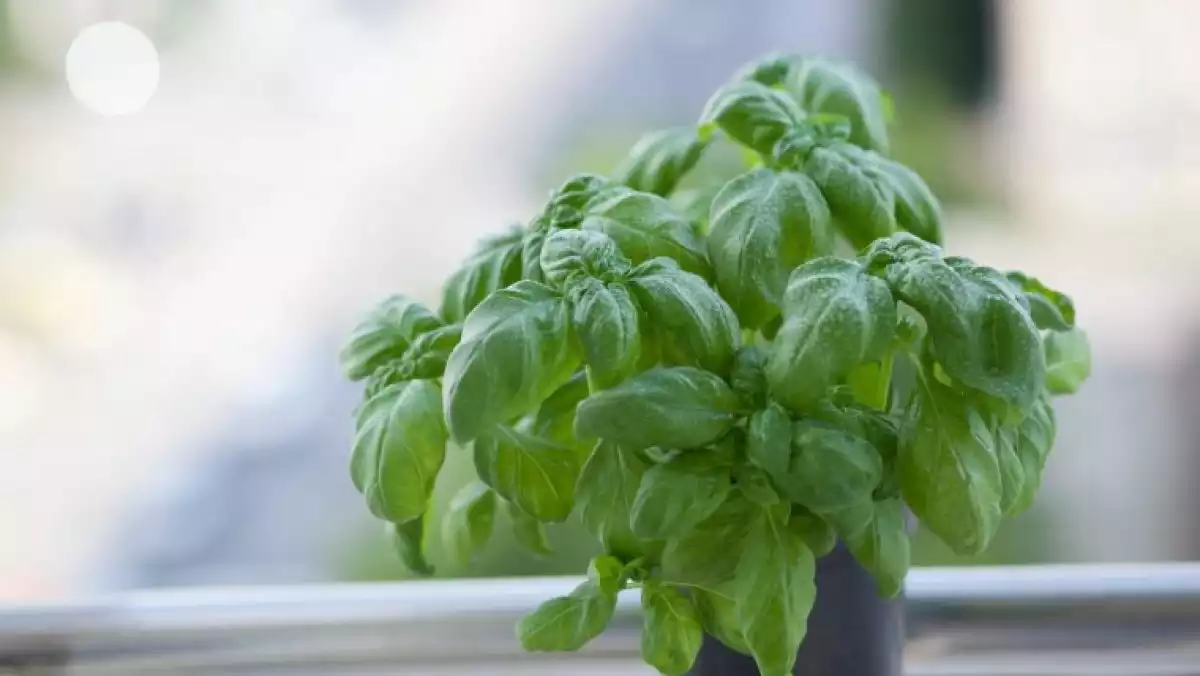
Originally from Asia, basil (Ocimum basilicum) is a tender, aromatic plant used in cuisines worldwide. It also has medicinal properties which make it extremely beneficial in treating inflammatory diseases as well as the effects of aging.
We will have a look at what basil is, what properties it has, how to grow it at home and the health benefits that it has.
What is basil (Ocimum basilicum)?
Basil is an aromatic, culinary herb of the family Lamiaceae that is also used as a medicinal plant. Its scientific name is Ocimum basilicum and is native to tropical regions from Africa to Southeast Asia. The ancient Romans and Greeks are responsible for making it popular across Europe.
The main terminology for this medicinal plant is sweet basil, however, there are many similar subtypes that are cultivated in smaller quantities.
Its main characteristics include its size, it does not exceed 130cm in height, the flowers are tubular shaped, purple or white and it has a predilection for tropical areas.
This plant was mistakenly believed to be poisonous and it was associated with the Devil. In ancient Greece, it represented hatred, misfortune, and poverty. Nowadays, basil is a highly valued plant.
In Murcia and Alicante, areas of Spain, this plant is called alhábega and it is used as a natural mosquito repellent. In Caribbean and Cuban cultures, it's also used in spiritual rituals, for purifying evil spirits. Mexicans use as a good-luck charm by placing it on the windows outside their homes or workplaces.
Basil is used in cooking to flavor different dishes such as stews, vinaigrettes, salads, as well as in pizzas and pasta dishes. It is extremely prevalent in Italian recipes as well as Vietnamese, Indonesian, and Thai cuisine.
Chefs use it to season meat and fish, dressings such as pesto, meatballs and other dishes. Basil can also be mixed with other herbs and spices, such as thyme and garlic, to highlight its taste. We mustn't exaggerate the amount of basil we eat and when we cook, the best way to ensure the plant retains its properties is to add it in last.
How to cultivate this medicinal plant
Basil is an aromatic and medicinal plant perfect to keep indoors. The plant is sensitive to frost, its seeds can be easily planted in pots and it also has the added bonus of being a natural mosquito repellent.
In terms of care, the plant should be kept in a sunny place, however, extreme heat should be avoided. It needs moist and drained soil to help growth, and you should also keep it away from snails, as it's one of their favorite snacks.
It's important to eat them fresh as the flavor tends to disappear after a while. One way of preserving the aroma is to dry them; you need to put the leaves in a dark and dry place, and then store them in glass containers.
Fresh basil leaves will lose their flavor and characteristic aroma if you store them in the fridge. A solution to this would be to put the leaves in a bottle of olive oil, this way you'll have an incredible basil oil to season salads and meals with.
Generally speaking, basil is a medicinal plant that can be cultivated easily and it grows quite rapidly. The first thing you must do when growing basil is to avoid cold environments. Some of the main basil care tips include the following:
- Store in a sunny place
- Water in the mornings
- Keep in well-drained soil with a pH from 6 to 7
- Prune leaves regularly, and remove flowers so they don't affect the taste
- Water twice a day in the summertime
- Keep it warm

How to use Ocimum Basilicum? Properties and benefits
The most common plant we use for flavor is the sweet basil (or Genovese basil) and it has a strong clover smell due to its high percentage of eugenol. Its hybrid counterpart, however, the lemon basil has a citrusy smell because of limonene, one of its chemical components.
Basil is used in Siddha medicine (traditional medicine in South India and Sri Lanka) and in Ayurveda (system of medicine in the Indian subcontinent) and it contains an array of vitamins and minerals such as:
- Retinol (vitamin A)
- Vitamin C
- Vitamin K
- Calcium
- Iron
- Magnesium
- Manganese
- Potassium
Research has shown that basil possesses many essential oils rich in phenolic compounds such as flavonoids and anthocyanins. In the following list, we aim to present a few of the main health benefits and properties of Ocimum Basilicum.
1. Cancer prevention
Nowadays, there are studies that examine basil's cancer prevention potential. These extraordinary benefits are due to components such as eugenol, rosmarinic acid, apigenin, myrtenal, luteolin, beta-sitosterol, and carnosic acid.
These active agents can help prevent skin cancer, liver, mouth, and lung cancer.
Nevertheless, these studies have yet to conclude, many possible effects are unknown and any results are still tentative.

2. Anti-aging properties
Basil helps reduce some of the effects of aging. Ocimum basilicum extracts can eliminate the molecules damaged by the free radicals in the liver, brain, and heat. Its antioxidant properties promote longevity.
3. Reduces inflammation
Because this plant is rich in caryophyllene it can prove useful in treating arthritis and inflammatory diseases in the stomach. Basil can also reduce swelling in the joints.
The anti-inflammatory effects of basil have been observed in another drug, made specifically for this purpose. Using basil as a complementary remedy could, therefore, be useful in inflammatory diseases.
4. Antimicrobial properties
Due to its many essential oils, such as estragole, linalool, eugenol, or limonene (among others) basil is renowned for its antimicrobial properties that prevent the growth of bacteria. Adding a few leaves of basil to your salads could help reduce the number of harmful bacteria.
References:
Baliga, M. S., Jimmy, R., Thilakchand, K. R., Sunitha, V., Bhat, N. R., Saldanha, E., Rao, S., Rao, P., Arora, R., & Palatty, P. L. (2013). Ocimum sanctum L (Holy Basil or Tulsi) and its phytochemicals in the prevention and treatment of cancer. Nutrition and cancer, 65(1): 26-35.
Patil, D. P., Mhaske, D. K., & Wadhawa, G. C. (2011). Antibacterial and antioxidant study of Ocimum basilicum Labiatae (sweet basil). Journal of Advanced Pharmacy Education & Research. 2: 104-112.
